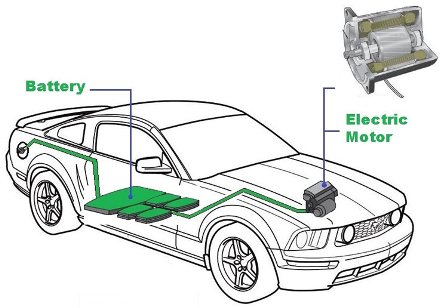EUGENE HERBERT
The move toward electric vehicles (EV) gained momentum in the northern hemisphere, because of environmental concerns, cost-effectiveness and developments in the technology.
However, ere EVs really more efficient?
Based on a Yale Climate Connections report, internal combustion engines (ICE) are more inefficient than EVs because of the energy lost in converting fuel into power.
ICE vehicles lose between 74 and 85% of their original energy in their fuel. It is consumed by heat produced in the engine, pumps, cooling systems and mechanical friction.
In comparison, EVs do not need to convert energy from one form into another and are consequently more efficient. They still lose energy during the charging process, for cooling, in the power steering and in the drivetrain and auxiliary components.
This accounts for a 31 to 35% energy loss but regenerative braking returns about 22% of this. Thus, comparatively, EVs lose approximately 13% of their original energy.”
While studies and theories make a strong argument, what do we discover if we break this down into a more relatable comparison? “Using South Africa’s most affordable fully electric vehicle, the MINI Cooper SE, it costs approximately R177 to fully charge (depending on the cost of the kWh) which gives you a range of about 217km.
The MINI Cooper S, with a slightly higher power output and claimed fuel consumption of 6L/100km, costs approximately R283 to travel 217km. Assuming the real-world fuel consumption is slightly higher than the claimed and depending on how the vehicle is driven, it is safe to assume that the cost is somewhat higher than this. Thus, again, the EV performs more efficiently. In comparisons between other vehicles there are variations but ultimately, EVs are more efficient.”
Other concerns, that the environmental impact is not as low as propagated, aside; there are definite benefits on a driver’s pocket.
EVs have many more efficiency benefits for consumers as well. In congested traffic it uses virtually no power but regeneration of power is limited.
EVs thrive with drivers that alternate between higher speeds and frequent braking.
Ultimately, the proof is in the ‘petrol.’
It thus far shows that there are efficiency benefits to EVs that ICE vehicles struggle to compete with. Once EVs have price parity with ICE vehicles, this will be even better. Consequently, the answer is yes, EVs are more efficient.
Eugene Herbert is the CEO of MasterDrive, South Africa
©Copyright MOTORING WORLD INTERNATIONAL. All rights reserved. Materials, photographs, illustrations and other digital content on this website, may not be reproduced, published, broadcast, rewritten or redistributed in whole or in part without prior written permission from Motoring World International
Contact: [email protected]




